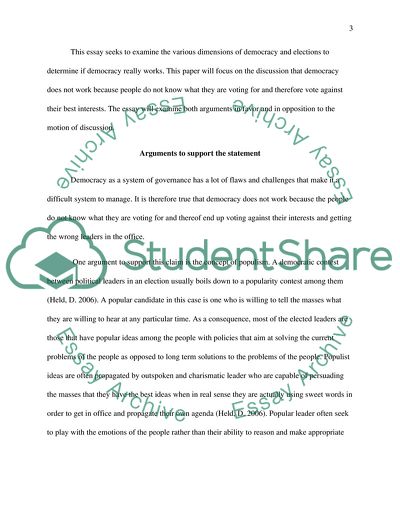Cite this document
(Democracy and Elections Essay Example | Topics and Well Written Essays - 1750 words, n.d.)
Democracy and Elections Essay Example | Topics and Well Written Essays - 1750 words. https://studentshare.org/politics/1804678-democracy-does-not-work-because-people-do-not-know-what-they-are-voting-for-and-therefore-vote-against-their-best-interests-discuss-this-statement
Democracy and Elections Essay Example | Topics and Well Written Essays - 1750 words. https://studentshare.org/politics/1804678-democracy-does-not-work-because-people-do-not-know-what-they-are-voting-for-and-therefore-vote-against-their-best-interests-discuss-this-statement
(Democracy and Elections Essay Example | Topics and Well Written Essays - 1750 Words)
Democracy and Elections Essay Example | Topics and Well Written Essays - 1750 Words. https://studentshare.org/politics/1804678-democracy-does-not-work-because-people-do-not-know-what-they-are-voting-for-and-therefore-vote-against-their-best-interests-discuss-this-statement.
Democracy and Elections Essay Example | Topics and Well Written Essays - 1750 Words. https://studentshare.org/politics/1804678-democracy-does-not-work-because-people-do-not-know-what-they-are-voting-for-and-therefore-vote-against-their-best-interests-discuss-this-statement.
“Democracy and Elections Essay Example | Topics and Well Written Essays - 1750 Words”. https://studentshare.org/politics/1804678-democracy-does-not-work-because-people-do-not-know-what-they-are-voting-for-and-therefore-vote-against-their-best-interests-discuss-this-statement.


